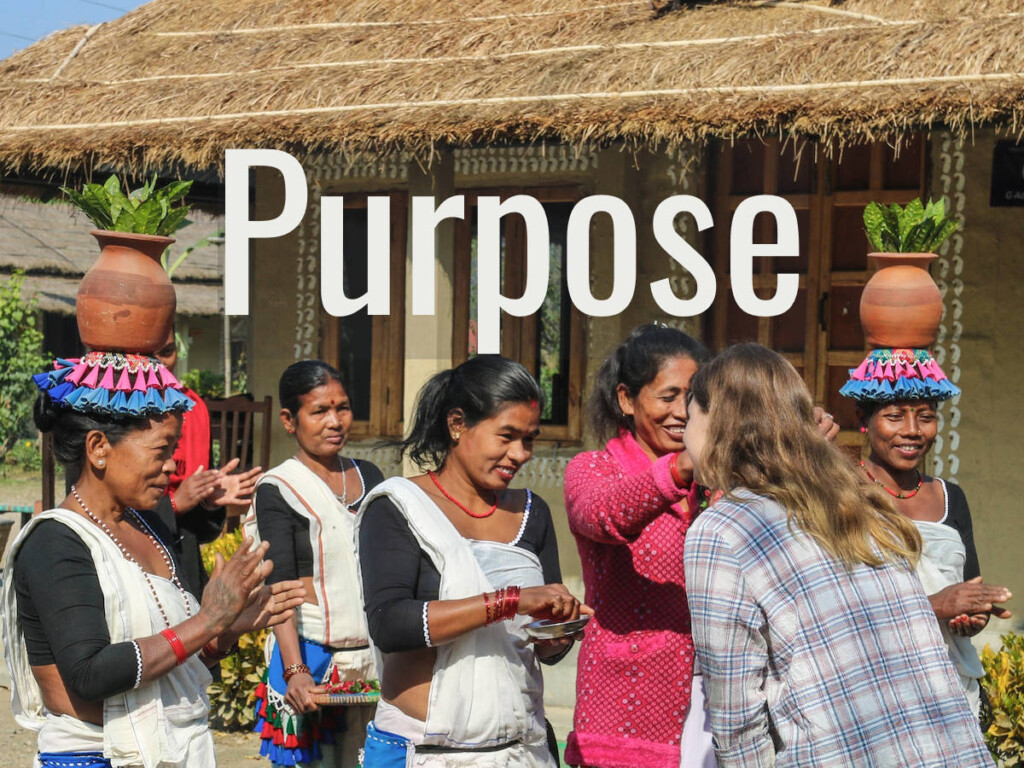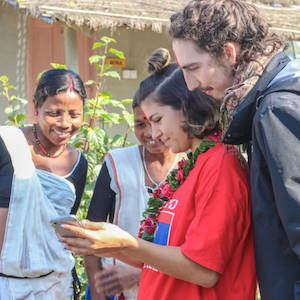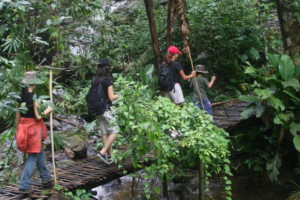Purposeful travel by design: Can tourism lead the way to a sustainable future?

Aayusha Prasain lays out her vision for purposeful travel and why the tourism industry should lead by example.
It’s a “Good Tourism” Insight. (You too can write a “GT” Insight.)
Purposeful travel involves more than just the joy of exploration.
It encompasses a mindful approach that preserves the environment, empowers local communities, promotes ethical practices, and ensures a sustainable future. It’s a way to learn and grow while making a positive difference.
When we, as tourism industry people, travel responsibly and with purpose, we lead by example. We encourage others in the industry and the travelling public to do the same, creating a better future for everyone.
Don’t miss other “GT” content tagged ‘Responsible travel & tourism’
How can we travel responsibly? And, by extension, how can we design and promote responsible travel options?
It is easy to use buzz words and phrases like ‘sustainability’, ‘responsible travel’, ‘women’s empowerment’, among others, to present a feel-good option to our customers. But how do we give meaning to these ideas through our actions?
Supporting local communities
Responsible tourism emphasises the support of local communities.
One of the best ways you can support locals is by choosing community-based accommodations for yourself and for your clients; accommodation like community homestays that are truly led and owned by local people, where you can live with your hosts and learn their way of life.

Immersive experiences like cooking with locals with ingredients that have been sourced locally, or investing your time to learn ancient script and art, among others, opens up opportunities for travellers to explore the local culture and have a meaningful connection with local people.
Based on my own experiences travelling and living in diverse communities, I have come to appreciate that understanding a culture means getting to know the blend of elements that is shaped by their language, history, geography, and food.
I personally believe that food serves as one of the best ways to learn the true essence of local communities.
Food-related experiences with locals, like learning how to cook thenthuk in a Sherpa community or savouring ghongi in a Tharu community, has always brought me joy and deepened my understanding about the community, such as how geography plays a huge part in shaping their lifestyle.
If you are travelling and designing trips for your customers, try to find organisations that are genuinely promoting local products and experiences.
Governments have a role to play. They can create opportunities for communities to actively participate in and benefit from the tourism industry, including offering training programs, skills development initiatives, and financial support to promote entrepreneurship and meaningful involvement.
Promoting ethical tourism practices
Promoting ethical tourism practices is essential for ensuring sustainable and respectful interactions between travellers and local communities.
In my experience, I have seen that travel and tour operators play a crucial role in this endeavour by implementing strong child protection and safeguarding policies.
Don’t miss “GT” content tagged ‘Ethical tourism’
Travel agents and tour operators like G Adventures and Royal Mountain Travel among others, have guidelines and policies designed in such a way it helps to prevent any exploitation of children and vulnerable individuals through tourism, ensuring their safety and well-being.
Similarly, wildlife protection is another critical aspect of ethical tourism. Tour operators should prioritise activities that do not harm or exploit wildlife. This may include avoiding attractions that involve captive or mistreated animals and promoting responsible wildlife viewing practices, such as maintaining a safe and respectful distance.

Governments can play a significant role here too, by making it a prerequisite for the mainstream travel industry as well as community-based enterprises to have comprehensive ethical tourism policies and operational guidelines in place as prerequisites for doing business in their jurisdictions.
Indeed, I believe government policies should explicitly address child protection and wildlife conservation. By setting such requirements, governments can foster responsible tourism practices and safeguard local communities and their resources.
By collectively focusing on strong policies, training, and empowerment initiatives, the travel & tourism industry can foster ethical practices, preserve local cultures and resources, and ensure that tourism delivers positive outcomes to communities as well as enriching experiences to travellers.
Helping travellers make responsible travel decisions
As we work in the travel industry, we understand that the responsibility of choosing responsible travel options should not be solely placed on individual travellers.
The industry needs to design and proactively promote responsible options.
Travellers need to be made aware. It is very difficult to be rational about supporting local causes once one is out there travelling.
Whether booking a trip through your organisation or buying a souvenir from a shop you take them to, it will be a more enriching experience for your travelling customer if they feel confident that you have done the appropriate research about who benefits most from the money they spend.
Hence, tourism authorities, travel agents, and all relevant stakeholders along the value chain, should take stronger actions to help travellers take wise steps.
A path to purposeful travel and responsible tourism
Engaging in purposeful travel fosters personal growth and cultural enrichment through immersive experiences, meaningful interactions with locals, and a deeper appreciation for diverse ways of life; without adopting a ‘saviour mentality’.
Purposeful, responsible tourism is as much, if not more, about the entire travel industry making an effort to design and promote such travel than it is about responding to individual travellers’ demand for it.
Don’t miss other “GT” content tagged ‘Corporate social responsibility’
By actively supporting businesses and organisations that prioritise sustainability and responsible practices, tourism stakeholders can become agents of change, propelling the industry towards a more sustainable future, and allowing our customers to enjoy their travels and appreciate their destinations without fretting about their choices.
A collective industry-wide effort to be responsible will transform ‘purposeful travel’ and ‘responsible tourism’ from marketing buzz phrases, or niche concepts demanded by a few, into a reality; a reality that secures a sustainable future for our unique and precious destinations, the people who live in them, and the travellers we serve.
What do you think? Share a short anecdote or comment below. Or write a deeper “GT” Insight. The “Good Tourism” Blog welcomes diversity of opinion and perspective about travel & tourism because travel & tourism is everyone’s business.
Featured image (top of post): A welcome at Barauli Community Homestay. Image supplied by Community Homestay Network.
About the author

Aayusha Prasain leads the Community Homestay Network (CHN), a Kathmandu-based Nepali social enterprise that “works with grassroots communities to develop attractive tourism experiences through a value-chain approach”. As CEO, her role includes “bringing stakeholders into alignment with CHN’s vision, mission, and goals”.





